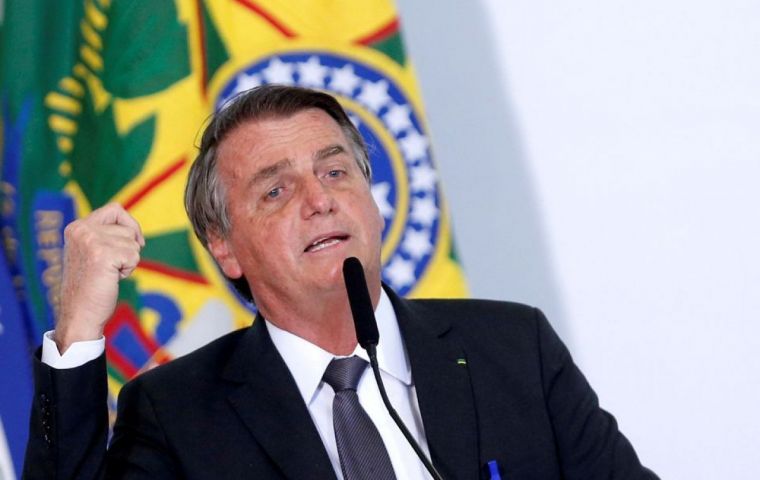
BRASILIA, Aug 27 (NNN-MERCOPRESS) — Brazil’s President Jair Bolsonaro has issued a decree ordering all federal agencies to cut down electricity consumption between 10 and 20% from September to April 2022, in the face of an unprecedented shortage in supply from less expensive sources.
The measure is aimed at avoiding blackouts, at a time when the current unprecedented drought affecting the country seems poised to get worse in the foreseeable future.
Bolsonaro’s decision reaches only federal government departments. State and municipal agencies are run by local authorities.
More than 22,000 buildings owned by the federeal government as well as 1,400 rented by it must meet the consumption reduction goal established on pre-pandemic energy expenditure levels. The basis for comparison is the average consumption in the same months of 2018 and 2019, the decree specifies.
Although the water crisis is already reflected in a rise in the price of electricity in homes, due to the use of more expensive thermoelectric energy, the government has only asked the population to consume consciously, avoiding measures of household rationing.
In 2001, the government of then President Fernando Henrique Cardoso was forced to apply energy rationing when a drought similar to the current one affected the output of hydroelectric plants.
The Electricity Sector Monitoring Committee (CMSE) said Tuesday after an exceptional meeting to address the critical situation, that “as seen in recent months, the degradation of the observed scenarios and future prospects predominate, with a deterioration relevant,” due to which the adoption of measures was “essential.”
The decree, published Wednesday in the Official Gazette, includes recommendations to federal public agencies to reduce consumption in their routine operations, such as “use only natural ventilation on days with mild temperatures,” or “use the stairs whenever possible,” among others suggestions.
In May, another presidential decision addressed the crisis, by enabling tenders to contract generating plants that will remain in ”reserve,” thus guaranteeing supply without massive cuts in extreme situations. — NNN-MERCOPRESS
